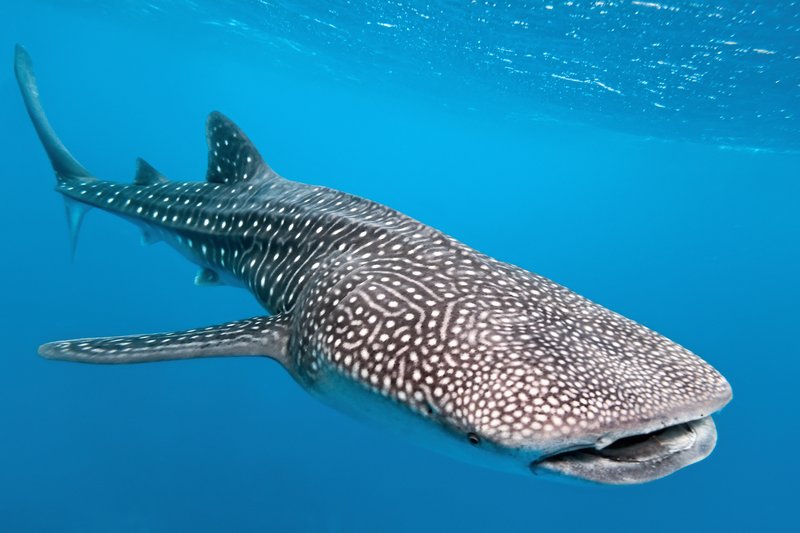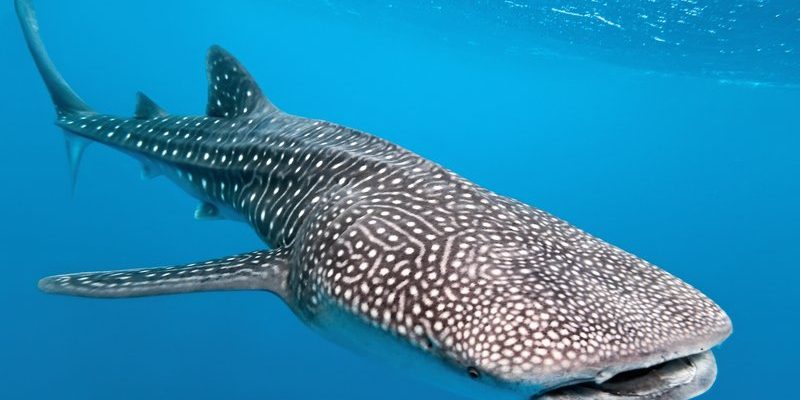
So, what exactly is the role of whale sharks in marine ecosystems? Well, let me explain it in simple terms. Just like bees pollinate flowers on land, whale sharks contribute to a thriving ocean environment. They help balance the ecosystem by supporting the populations of other marine life. Their presence affects everything from tiny plankton to larger predatory species, creating a ripple effect throughout their habitat. Let’s dive into this fascinating topic and explore everything you need to know about these magnificent creatures and their importance in the ocean.
What Are Whale Sharks?
Whale sharks are truly remarkable creatures. These fish can grow up to 40 feet long, which is about the length of a school bus! They have a distinct appearance, with a patterned body covered in light spots against a dark backdrop, making them a sight to behold. Whale sharks are filter feeders, which means they eat by taking in large amounts of water and filtering out tiny organisms like plankton. Imagine a giant vacuum cleaner, but instead of sucking up dirt, it’s pulling in nutritious food from the ocean.
These gentle giants are found in warm waters across the globe, often in tropical and subtropical regions. They usually prefer coastal areas, where they can easily access abundant food sources. But here’s the thing: despite their size, they are harmless to humans and often swim alongside divers, creating unforgettable moments. Their friendly nature and unique feeding habits certainly make them a favorite among marine enthusiasts.
Whale Sharks and Biodiversity
Biodiversity is essential for the health of any ecosystem, and whale sharks play a pivotal role in promoting it. By feeding on plankton and small fish, they help control these populations, preventing any one species from dominating. This is crucial for maintaining balance in the ocean. When different species thrive, it creates a vibrant and diverse environment, which benefits the entire marine community.
Moreover, whale sharks serve as hosts for various smaller organisms, like barnacles and remoras, which live symbiotically with them. This relationship is like a little neighborhood where different species coexist, each benefiting from the other. You might think of it as a cozy apartment building, with everyone respecting each other’s space while enjoying the perks of living together.
The Role of Whale Sharks in Nutrient Cycling
Whale sharks do more than just help maintain biodiversity; they also play an important part in nutrient cycling within marine ecosystems. As these sharks swim and feed, they contribute to the distribution of nutrients throughout the ocean. When they consume plankton and excrete waste, they release nutrients back into the water, which supports the growth of phytoplankton—tiny, microscopic plants that form the foundation of the marine food web.
This cycling of nutrients is essential for maintaining productivity in ocean habitats. It’s kind of like compost in a garden, enriching the soil so new plants can grow. Without this process, the health of the entire ecosystem could suffer. So, next time you think about whale sharks, remember they’re not just big fish; they are also nature’s nutrient recyclers.
Whale Sharks as Bioindicators
Whale sharks also act as bioindicators, meaning their presence and health can give us important clues about the state of marine ecosystems. When researchers monitor whale shark populations, they can gauge the health of the surrounding waters. A thriving population often suggests a healthy environment, while a decline can signal problems like overfishing or pollution.
By studying these gentle giants, scientists can gather valuable data on ocean health and the impacts of climate change. For instance, if whale sharks start disappearing from a particular area, it could indicate that the food supply is diminishing or that the environment is becoming uninhabitable. This information is crucial for conservation efforts and helps us take action before it’s too late.
Threats to Whale Sharks
Unfortunately, whale sharks face several threats that jeopardize their survival. One of the most significant issues is overfishing, often driven by the demand for their meat, fins, and oil. Additionally, climate change poses a risk, as rising ocean temperatures and acidification can disrupt the delicate balance of marine ecosystems.
Pollution is another major threat. Plastic waste and toxins can harm not only whale sharks but all marine life. When these pollutants enter the food chain, they can cause devastating effects on the health of various species. It’s essential that we recognize these challenges and work towards protecting these magnificent creatures and their habitats.
Conservation Efforts for Whale Sharks
Many organizations and governments are taking steps to protect whale sharks and their habitats. Conservation efforts often include establishing marine protected areas (MPAs) that restrict fishing and other harmful activities. Educating local communities about the importance of whale sharks helps foster a sense of stewardship for these magnificent creatures.
Research plays a crucial role in these efforts. By tracking whale shark movements and understanding their behavior, scientists can develop targeted conservation strategies. In some regions, sustainable eco-tourism initiatives also promote whale shark conservation while providing economic benefits to local communities. Here’s the thing: by protecting whale sharks, we also protect the entire marine ecosystem they support.
How You Can Help
Want to contribute to the preservation of whale sharks? Here are a few simple actions you can take:
- Support sustainable seafood: Choose seafood from well-managed fisheries to help reduce overfishing.
- Reduce plastic use: Cut down on single-use plastics to help combat ocean pollution.
- Educate others: Share your knowledge about whale sharks and their importance in marine ecosystems.
- Participate in conservation programs: Volunteer or donate to organizations focused on marine conservation.
Every small action counts. By working together, we can make a difference and ensure that whale sharks continue to thrive in our oceans.
In summary, whale sharks are more than just awe-inspiring creatures of the sea; they are vital components of marine ecosystems. Their role in promoting biodiversity, nutrient cycling, and serving as bioindicators showcases the interconnectedness of ocean life. Protecting these gentle giants is essential not just for their survival but for the health of our oceans as a whole.
As we become more aware of the challenges they face and the steps we can take to help, we can all contribute to a future where whale sharks and the diverse marine ecosystems they support thrive for generations to come. So, next time you think of whale sharks, remember their importance, and let that influence how you interact with our shared blue planet.

